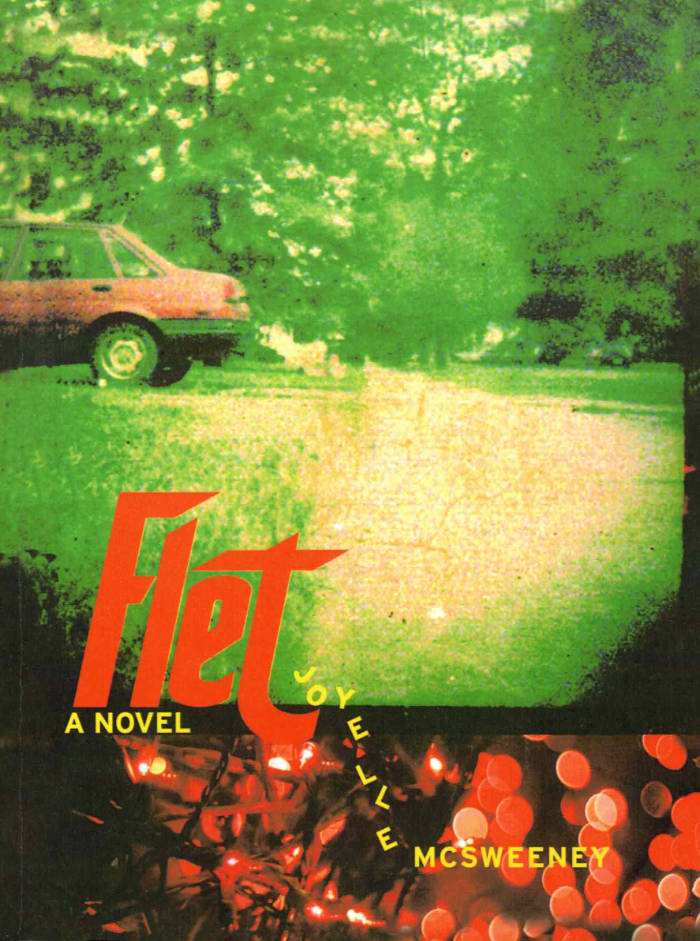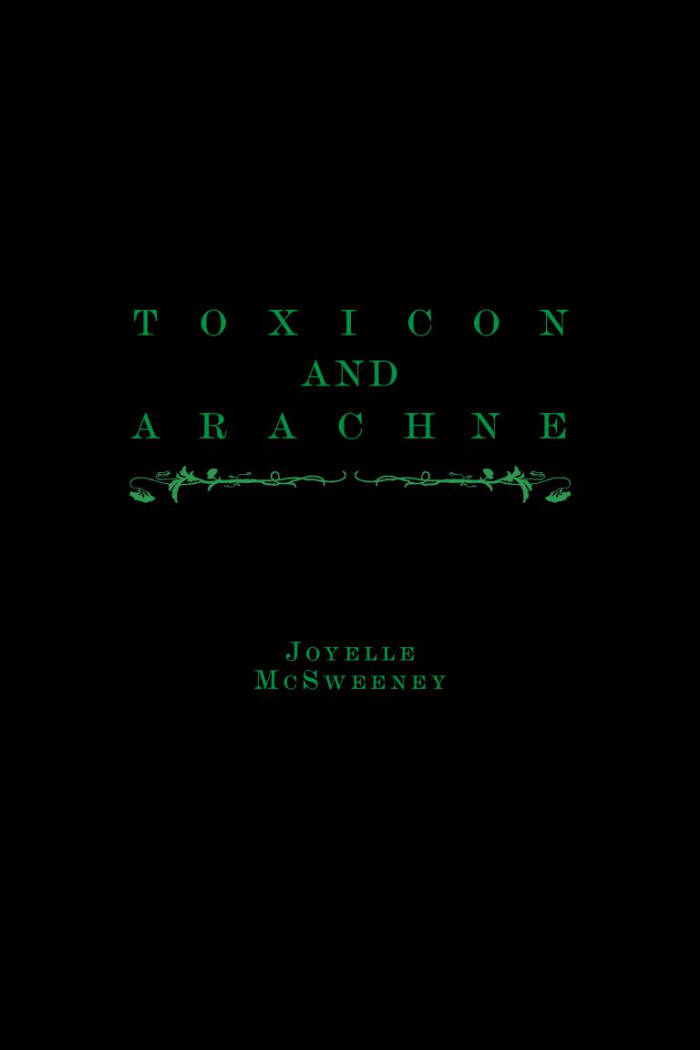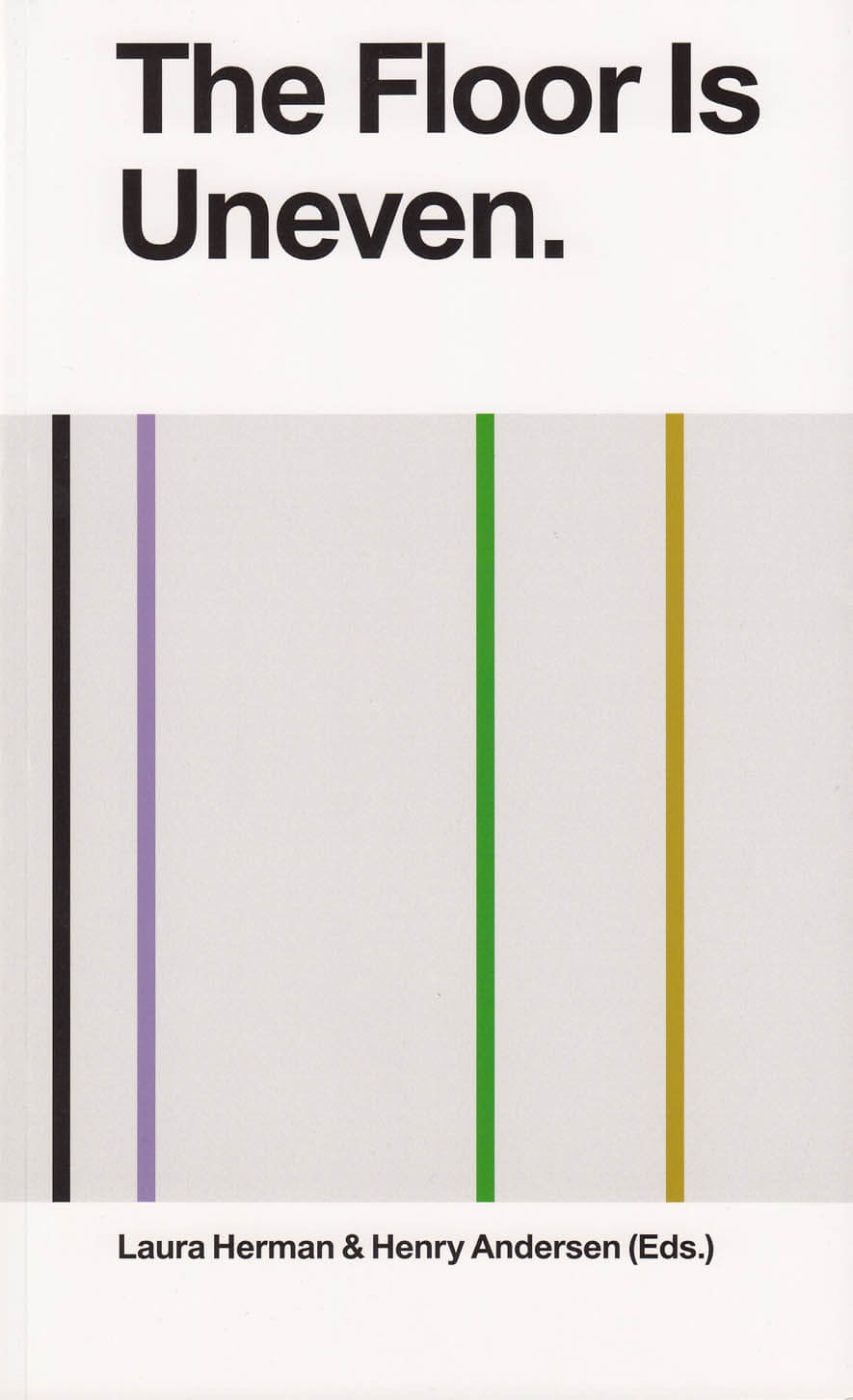Joyelle McSweeney
Joyelle McSweeney

Flet
Set in a spaced-out future in which all cities have been evacuated after an "Emergency," FLET is named for its female protagonist, an Administration flunky who begins to suspect that the Emergency may be a tool of sociopolitical oppression. An elegant entry in speculative fiction, Flet finds McSweeney slowing her distinctively hyperactive imagination down to the speed of narrative.

Death Styles
In this follow-up to her award-winning collection, Toxicon and Arachne, Joyelle McSweeney proposes a link between style and survival, even in the gravest of circumstances. Setting herself the task of writing a poem a day and accepting a single icon as her starting point, however unlikely—River Phoenix, Mary Magdalene, a backyard skunk—McSweeney follows each inspiration to the point of exhaustion and makes it through each difficult day. In frank, mesmeric lyrics, Death Styles navigates the opposing forces of survival and grief, finding a way to press against death’s interface, to step the wrong way out of the grave.
A recipient of a 2022 Guggenheim Fellowship for Poetry, Joyelle McSweeney’s published works span poetry, prose, drama, translation, and criticism. Her debut volume The Red Bird (2001) inaugurated the Fence Modern Poets Series; her verse play Dead Youth, or the Leaks (2012) inaugurated the Leslie Scalapino Prize for Innovative Women Playwrights; and her most recent double-collection, her co-translation with Jack Jung, Don Mee Choi, and Sawako Nakayasu of Yi Sang’s Selected Works received numerous recognitions, including the 2021 MLA Aldo and Jeanne Scaglione Prize for a Translation of Literary Work. Her influential volume The Necropastoral: Poetry, Media, Occults (2014) counters conventional ecopoetics by locating aesthetic and political possibility in such signature Anthropocene phenomena as mutation, contagion, contamination, and decay. McSweeney is a Professor of English at the University of Notre Dame.

Toxicon and Arachne
In Toxicon & Arachne, McSweeney allows the lyric to course through her like a toxin, producing a quiver of lyrics like poisoned arrows. Toxicon was written in anticipation of the birth of McSweeney's daughter, Arachne. But when Arachne was born sick, lived briefly, and then died, McSweeney unexpectedly endured a second inundation of lyricism, which would become the poems in Arachne, this time spun with grief. Toxicon & Arachne is the culmination of eight years of engagement with lyric under a regime of global and personal catastrophes.
And more

Répondeur
Slow Reading Club (SRC) is a semi-fictional reading group initiated and run by Bryana Fritz and Henry Andersen. Since 2016, in numerous contexts, they have rehearsed alternatives to the kinds of reading they were taught in school, actively suppressing semantic content through strobe lights, strange postures, sociality, and toxins. Operating at the contact zones between reader and text, text and text, reader and reader, they attempt to build a practice from within the unstable space of reading itself.
Répondeur is an extensive account of SRC’s practice in collective reading sessions, exhibitions, and textual bootlegging. Imagined as a scroll, with a rhyme structure and typesetting by Will Holder, the book brings together facsimiles of SRC readers, a wide-ranging interview by Alicja Melzacka, new texts by Joyelle McSweeney and Bill Dietz, and visual work and translations by SRC. These discrete elements are interwoven into a complex, shimmering whole, delighting in the ruptures and elisions of one text’s move into the next.

The Floor Is Uneven. Does It Slope?
In 1987, artist and poet Madeline Gins (1941–2014) and her partner, painter Arakawa (1936–2010), formed the Architectural Body Research Foundation (later to become the Reversible Destiny Foundation)—an architectural office pursuing the radical conviction that architecture would provide humanity with the necessary tools and training to overcome death. Their wide variety of theories investigated how a person might interact with their environment, and how that environment might condition and enhance the body to increase its capabilities—through a constant undoing and unsettling of subject formation. Taking the work and writings of Madeline Gins and Arakawa as a broad provocation, The Floor Is Uneven. Does It Slope? aims to swallow and masticate the duo’s thought into a new sort of pulp: a collective fan fiction work. Less a book about Gins and Arakawa than a book after them, it tries to seed their work to various fans—writers and makers indebted to the duo’s thinking or suspected to be enthralled by it.
Contributors speak about Gins and Arakawa through the language of their own practice, through academia, poetry, essays, photography, experimental writing, and fiction—thinking about what Gins and Arakawa might mean to their individual fields.
Texts by Henry Andersen, Lila Athanasiadou, Ben Thorp Brown, Lucas Crawford, Bryana Fritz, Laura Herman, Daisuke Kosugi, Joyelle McSweeney, Simone C. Niquille, Andros Zins-Browne.